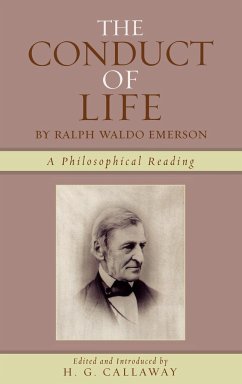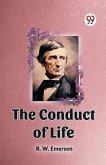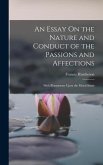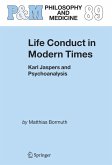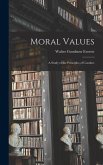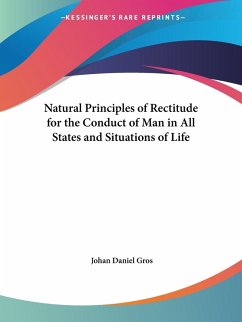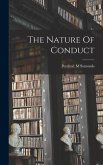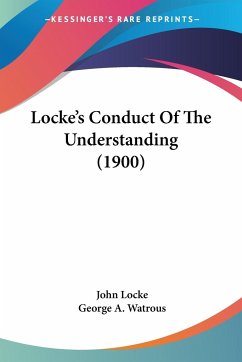Ralph Waldo Emerson's 1860 book, The Conduct of Life is among the gems of his mature works. First published in the year of Abraham Lincoln's election as President, this work poses the questions of human freedom and fate. The book, here newly edited from the original 1860 edition and fully annotated to illuminate and trace Emerson's references, is a great classic of American philosophy and literature.
Hinweis: Dieser Artikel kann nur an eine deutsche Lieferadresse ausgeliefert werden.
Hinweis: Dieser Artikel kann nur an eine deutsche Lieferadresse ausgeliefert werden.
This well-organized editorial material is useful especially for students and general educated readers coming to study these works for the first time, but also for the specialist who wants to check details or keep up with central literature. The editor's notes offer historical contextualization, terminological and etymological clarifications, and information on both the well-known and the relatively unknown authors cited by Emerson... Callaway has modernized the spelling of the prose, but otherwise the editions follow the originals. -- Sami Pihlstrom, University of Jyvaskyla, Finland Although the works of Emerson are studied in the departments of literature in the United States, we encounter on this occasion-as suggested by the subtitle-a genuinely philosophical reading, as reflected in the thoughtful Introduction by the editor...and especially in the patient provision of annotation of the nine chapters...Fortunately for us, this work...makes the original text much more readable and understandable...In sum, it is a good moment to return to to reading Ralph Waldo Emerson. -- Jaime Nubiola, University of Navarra Anurario Filosofico

